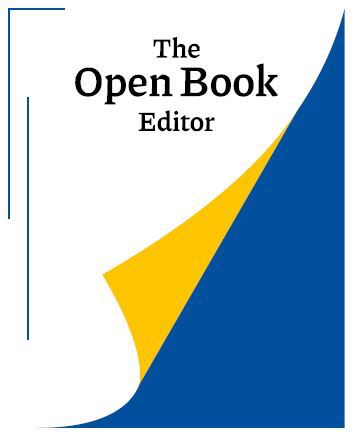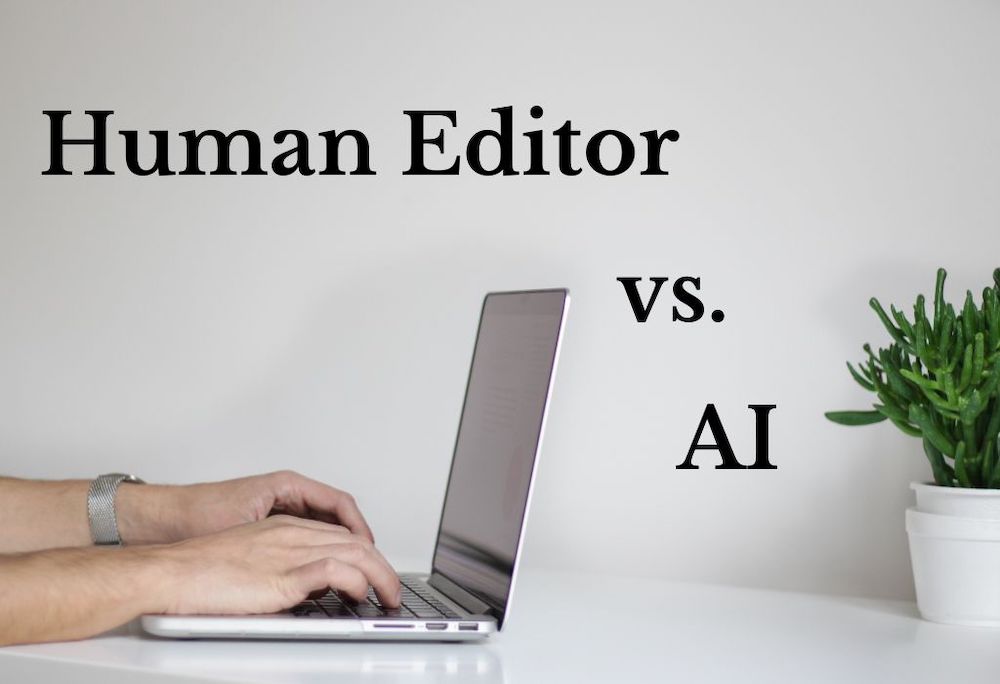A common misconception about professional book editors is that they only correct grammatical mistakes. Surely, you can just feed your manuscript through an AI editing software and achieve the same result, right? Not really! Editing is a complex process and there are many reasons why a human book editor is still better than AI.
While it’s normal to wonder if AI can, and will, replace writers and editors, the truth is, AI-driven tools cannot do what humans can. In the majority of cases, a human book editor is miles better than any sort of AI editor. And since AI is the hot topic of the moment, let’s dive into this more! Below, we explore five ways in which a professional (human) book editor will perform better than AI throughout every aspect of the editing process.
Human book editors are better than AI because…
1. AI lacks nuance
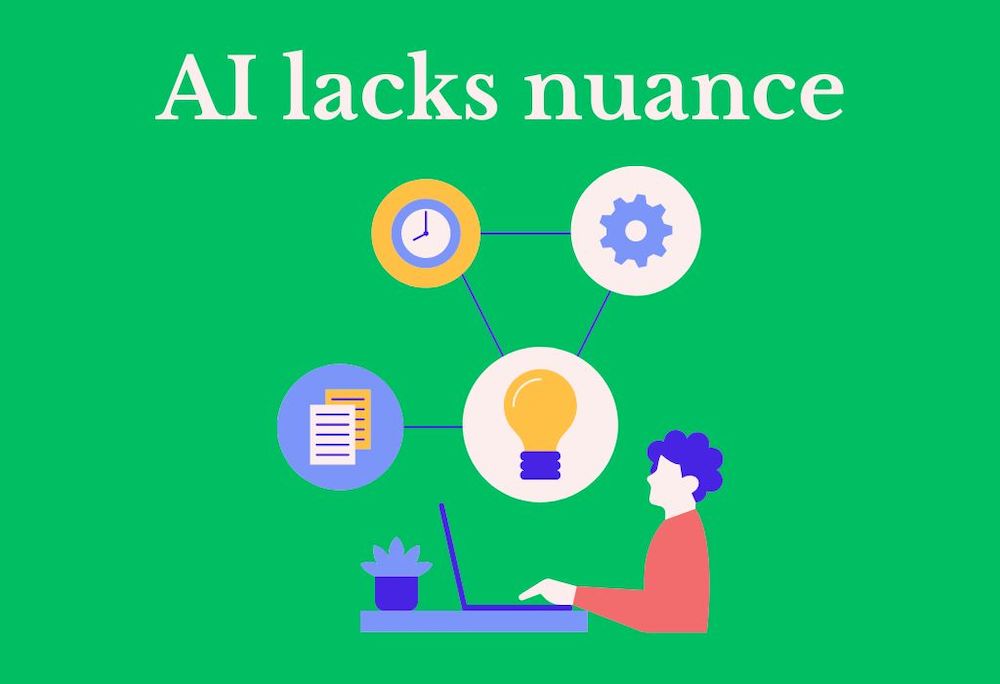
The most glaring issue with AI (and a huge reason why human book editors are better) is the lack of nuance. AI follows algorithms, which in turn means it’s good at following rules. However, this means AI can only achieve as much as its programming (and the information it’s been fed) allows. But human editors don’t have this issue. They are better than AI precisely because humans are capable of nuance.
Human editors are able to adapt to each unique manuscript. They can look at a book and spot exceptions to rules. A human editor can also understand when it is appropriate for the writing to fall outside the norm. This influences their editing approach. Hence, a human book editor will be better equipped to tailor their editing in ways AI can’t.
It’s also no secret that we humans are very emotion-driven. And we like to see this reflected in the books we read! Because AI lacks the ability to feel emotions, it can’t tell you if your writing triggers a desired effect, or what an emotional scene lacks to make it hit just right.
In short, while new AI language models are a huge leap forward, they still lack the ability to contextualise when it comes to writing and editing long-form text.
2. AI is inaccurate
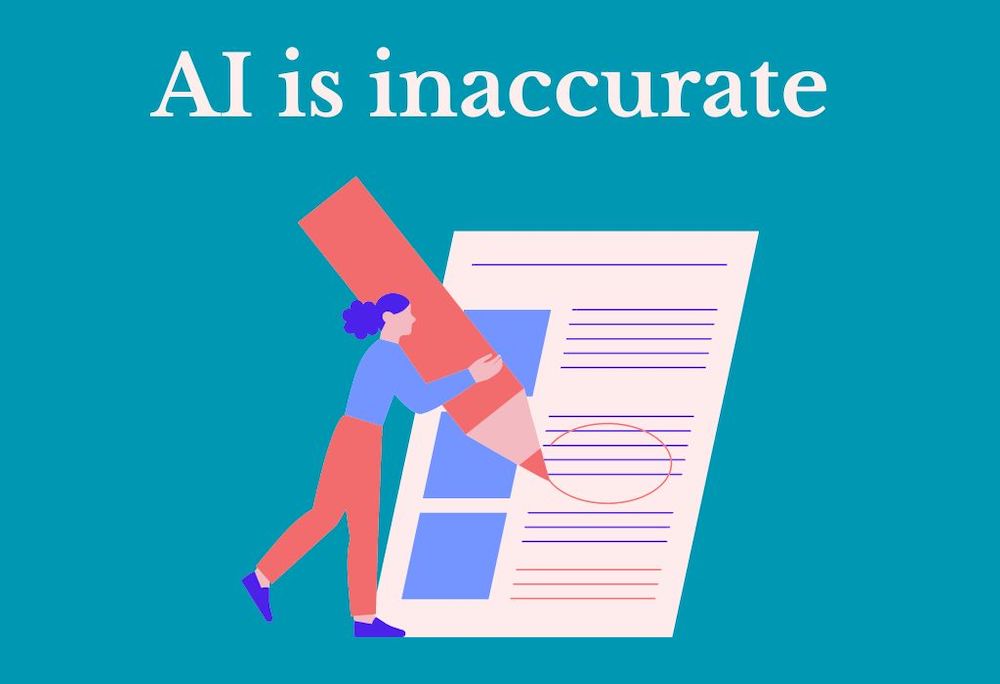
In its current form, AI is incredibly error-prone. And it won’t just miss glaring mistakes. Different programs will sometimes disagree on what is the proper spelling, grammar, or punctuation fix for your writing. Hence, even copy-editing can be problematic as you can’t rely on AI to catch even the most basic errors. Hiring a human book editor instead will translate to a better edited manuscript. This will increase your chances of success—whether you choose to query agents, pitch to publishers, or self-publish your book.
Because AI can’t fact-check, there’s also a risk that any information it provides will be inaccurate or incorrect. While human book editors aren’t infallible (they are human, after all!), they’re better than AI because they’re capable of seeking out and verifying information separately and objectively.
However, AI inaccuracies extend beyond grammar mistakes and erroneous information. It’s important to note that the more you rework a piece of writing using an AI editor, the more convoluted the writing can become. AI has the capability of making things sound as if they make sense and are true. This is the case even when they aren’t (or are complete fabrications). And, since AI is not equipped to handle large amounts of text, it will also struggle to keep track of details over the length of a book. Hence, it will often introduce inconsistent details or plot holes.
3. AI can’t understand your unique voice
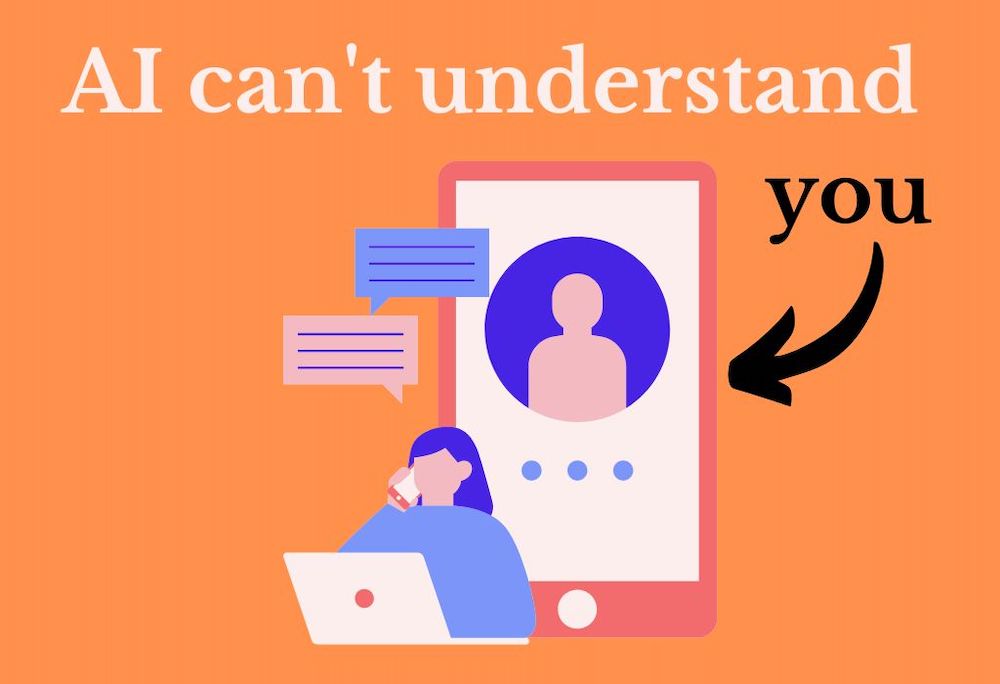
Let’s talk about the ‘human’ aspect of hiring a person to edit your book! One of the major benefits of a human book editor is that they are someone you can connect with on a personal level. This makes human book editors incredibly effective (and better than AI).
Why? Because a great book editor will get to know you, the writer. And they’ll take time to understand your vision for your work. While you can use AI for brainstorming, it can’t quite replace the back-and-forth between a writer and a great editor. And let’s face it, talking with a human editor is a much more fun approach to the editing process!
This is where different types of book editors come into play. Each type serves a specialised purpose. They’ll focus on improving certain aspects of your book, while respecting your unique voice and goals for your work.
4. AI lacks creativity
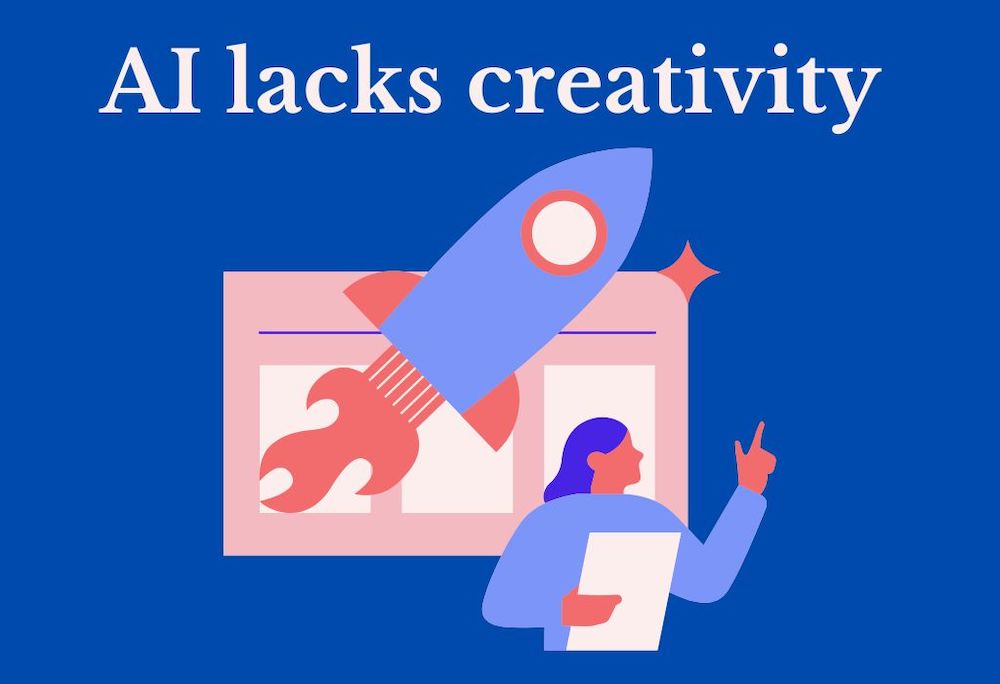
Like we mentioned above, AI works off of the information it’s been fed. This doesn’t just limit AI. It also means all of its solutions and responses are based on writing and art that’s already out there.
For example, let’s say you ask AI to create a believable character or help with worldbuilding for your book. It may come up with what seems like, on the surface, good ideas. However, because it’s simply pulling from already existing work, you may end up with characters or worldbuilding that are cliché or commonplace.
Of course, the most obvious red flag here is that AI will utilise other authors’ work. Ethical issues aside, you run the risk of “writing” a book that is too similar to something already out there. (Which may lead to other legal issues beyond being accused of lacking originality).
A human book editor is better than AI because they’ll be able to tell when writing is trite, tired, or overdone (and help you make it better!). For example, a human editor will be able to point out if you have too many characters in your story, if your exposition is bloated, or if your dialogue sounds believable. AI can’t. Human creativity trumps AI every time!
5. AI can’t offer an expert opinion
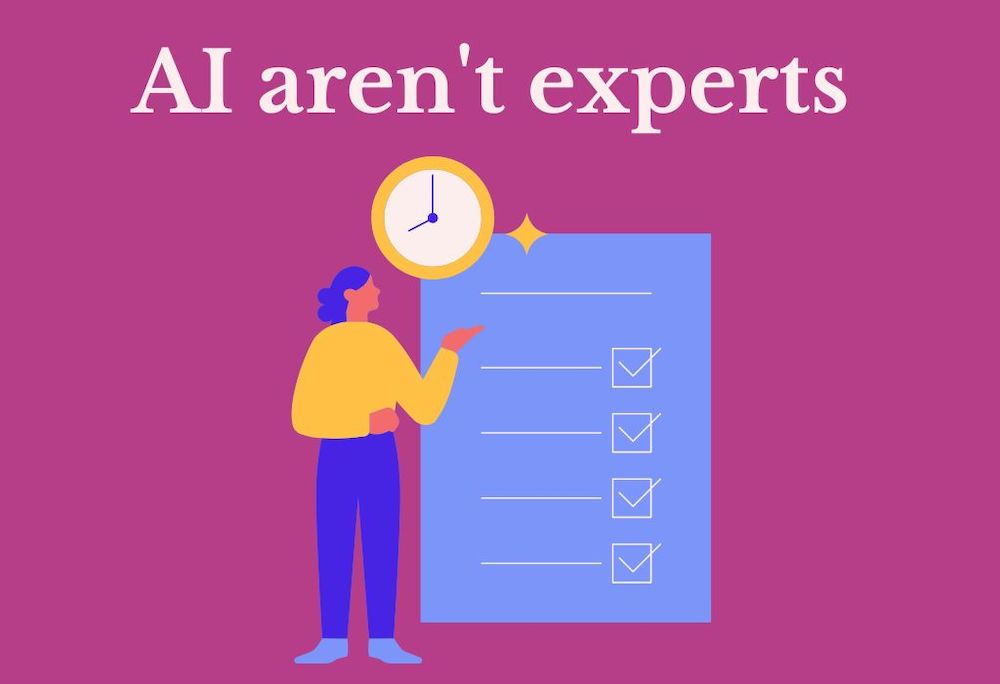
At the end of the day, human book editors are better than AI because they are actual publishing professionals. Their wheelhouse goes way beyond just editing your book; they can also offer expert opinions and advice on the publishing world.
Book editors don’t just know what makes good writing. They also keep up with market trends and can help tailor your unique work to the publishing world’s demands and the publishing route you choose. Through useful services like author coaching, a book editor can provide personalised help with the dreaded query letter, synopsis, or blurb for your book.
While AI could technically write all these for you, they will ultimately sound a bit soulless. But a human editor can help find ways to make your pitch package stand out from the slush pile. And, even better, a human editor can offer encouragement and bolster your confidence as a writer!
While AI is the fun new toy at the moment, you should never underestimate the power of human intuition, especially when it comes to editing your book! Obviously, AI is here to stay and we’ll probably be debating its pros and cons for a long time to come. As long as you know its limitations and understand the importance of a human book editor, AI can be a useful tool for writers. And, while we’re all feeling a bit spooked about AI’s potential to replace us, remember that there is no replacement for good writing and editing. These are skills humans have and will continue to excel at, with or without AI.
